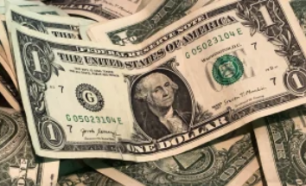[8/3/23]Many experts predicted a recession last year, but a lot of them are changing their tune this year.
Many economists began forecasting recession last year, but a downturn obviously hasn’t happened yet, with the economy expanding an annualized 2.4% in the second quarter.
And now the experts are starting to change their tune. That includes Bank of America economist Michael Gapen.
“Recent incoming data has made us reassess our prior view that a mild recession in 2024 is the most likely outcome,” he wrote in a commentary.
“Growth over the past three quarters has averaged 2.3%, the unemployment rate has remained near all-time lows, and wage and price pressures are gradually moving in the right direction.
Cyclically sensitive sectors have shown signs of stabilization.”
Unemployment totaled 3.6% in June. And consumer prices rose 3% in the 12 months through June, slowing from a 4% increase in May.
Soft Landing Ahead
So, “we revise our outlook in favor of a soft landing, where growth falls below trend in 2024, but remains positive throughout our forecast horizon,” Gapen said.
“We forecast GDP growth of 2.0% this year, 0.7% in 2024, and 1.8% in 2025.” The previous prediction was for 1.5% for 2023 and zero growth for 2024.
“We still expect inflation to decelerate and remain on a path to 2.0%,” Gapen said. “But with a stronger forecast for activity and labor markets, inflation falls more gradually. We look for the unemployment rate to rise to a peak of 4.3% in the first quarter of 2025.”
So what does this mean for Federal Reserve policy? “We still expect one additional 25-basis point hike in September for a terminal target range of 5.50-5.75%,” Gapen said. “We now expect the first rate cut in June 2024.”
BofA anticipates a total of 75 basis points of rate cuts in 2024 and 100 basis points of reductions in 2025. Interest-rate futures contracts have recently implied 120 to 160 basis points of rate cuts in 2024.
Goldman Sachs Sees no Recession Either
Goldman Sachs also has adjusted its economic outlook.
“We are cutting our probability that a U.S. recession will start in the next 12 months further from 25% to 20%,” the bank’s chief economist Jan Hatzius wrote in a report last month. Goldman pegged the possibility at 35% in March.
“This remains slightly above the unconditional post-war average probability of 15% — a recession has occurred approximately every seven years — but far below the 54% median among forecasters in the latest Wall Street Journal survey.”
So what caused Goldman’s increased enthusiasm for the economy?
“The main reason is that the recent data have reinforced our confidence that bringing inflation down to an acceptable level will not require a recession,” Hatzius said.
U.S. economic activity is buoyant, consumer sentiment is rebounding sharply, and unemployment remains low, he noted.
“The easing in financial conditions, the rebound in the housing market, and the ongoing boom in factory building all suggest that the economy will continue to grow, albeit at a below-trend pace.”

